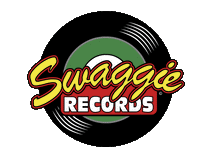![[CD] LINTON KWESI JOHNSON • BASS CULTURE • SWAGGIE RECORDS TOP 10! • U.K. IMPORT](http://swaggierecords.com/cdn/shop/products/image_png_1505401209_{width}x.png?v=1603730275)
[CD] LINTON KWESI JOHNSON • BASS CULTURE • SWAGGIE RECORDS TOP 10! • U.K. IMPORT
People in the streets protesting racism. A feeling that black lives are regarded as worthless. A lack of prospects and deep division.
While this scene describes the United States in the summer of 2020, it was also England 40 years earlier, emerging from the 70s in a fractured, fretful state. Young people marched across London, taking a stand against fascism. Unemployment was soaring. The annual celebration of Caribbean culture that was the Notting Hill Carnival collapsed into rioting in 1976. The following year a right wing rally was met with 4,000 counter-demonstrators at the Battle Of Lewisham, and two years later, an anti-Nazi riot erupted in the London suburb of Southall.
While punk rock attempted to capture the sense of chaos and disenfranchisement, another artist, one who was walking an uncharted route in music, was arguably far better at expressing it. That artist was Linton Kwesi Johnson. Bass Culture, his third album, released in 1980, not only seized the moment; it laid down a marker that still resonates.
Linton Kwesi Johnson didn’t sing. He didn’t DJ, the pioneering Jamaican rapping style that was a precursor to hip-hop. On record, Johnson simply spoke his verses over a deep, heavy rhythmic backing, a style that became known as dub poetry.
Track Listing:
- 1. Bass Culture
- 2. Street 66
- 3. Reggae Fi Peach
- 4. Di Black Petty Booshwah
- 5. Inglan Is a Bitch
- 6. Loraine
- 7. Reggae Sounds
- 8. Two Sides Of Silence
